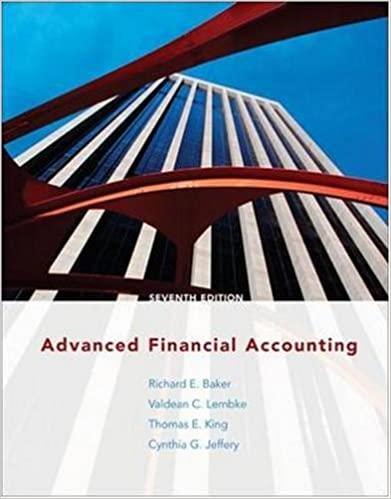The problem of accounting for deferred taxation is one that has been on the agenda of the
Question:
The problem of accounting for deferred taxation is one that has been on the agenda of the Accounting Standards Board for some time. In December 2000, the Accounting Standards Board published FRS 19 – Deferred Tax. The Standard basically requires that full provision is made for deferred tax on all timing differences and therefore rejects the two alternative bases of accounting for deferred tax, the nil provision (or ‘flow-through’) basis and the partial provision basis. However, FRS 19 does not normally require companies to provide for deferred tax on revaluation surpluses or fair value adjustments arising on consolidation of a subsidiary for the first time.
Required
(a) Explain why the ASB rejected the nil provision and partial provision bases when developing FRS 19. (6 marks)
(b) Discuss the logic underlying the FRS 19 treatment of deferred tax on revaluation surpluses and fair value adjustments and indicate any exceptions to the general requirement not to provide for deferred tax on these amounts. (5 marks)
You are the management accountant of Payit plc. Your assistant is preparing the consolidated financial statements for the year ended 31 March 2002. However, he is unsure how to account for the deferred tax effects of certain transactions as he has not studied FRS 19.
These transactions are given below:
Transaction 1 During the year, Payit plc sold goods to a subsidiary for £10 million, making a profit of 20%
on selling price. 25% of these goods were still in the stock of the subsidiary at 31 March 2002.
The subsidiary and Payit plc are in the same tax jurisdiction and pay tax on profits at 30%.
Transaction 2 An overseas subsidiary made a loss adjusted for tax purposes of £8 million (£ equivalent). The only relief available for this tax loss is to carry it forward for offset against future taxable profits of the overseas subsidiary. Taxable profits of the overseas subsidiary suffer tax at a rate of 25%.
Required
(c) Compute the effect of BOTH the above transactions on the deferred tax amounts in the consolidated BALANCE SHEET of Payit plc at 31 March 2002. You should provide a full explanation for your calculations and indicate any assumptions you make in formulating your answer. (9 marks)
CIMA, Financial Reporting – UK Accounting Standards, May 2002 (20 marks)
Step by Step Answer:

Advanced Financial Accounting
ISBN: 9780073526744
7th Edition
Authors: Richard Baker, Valdean Lembke, Thomas King, Cynthia Jeffrey





